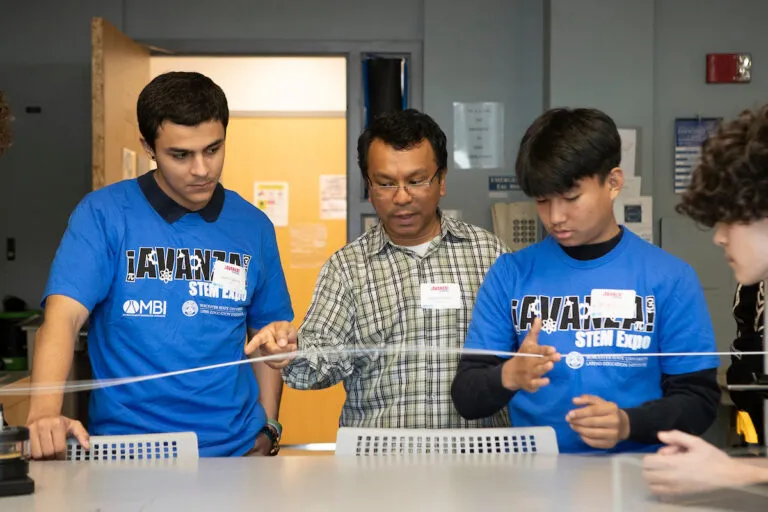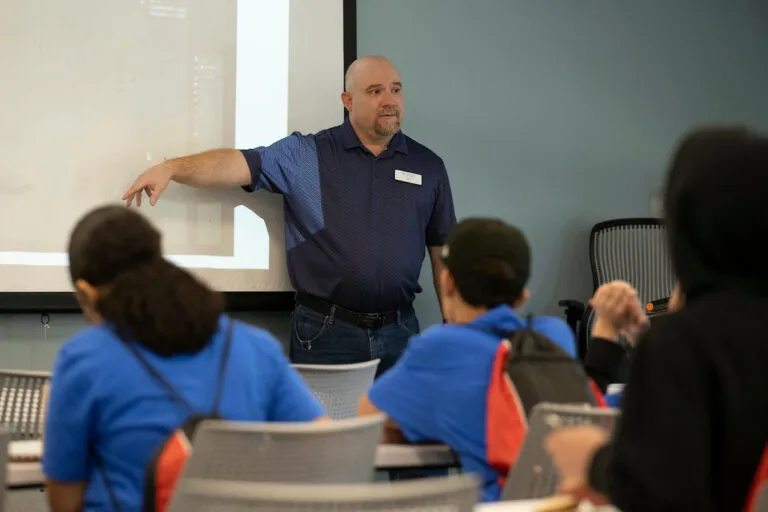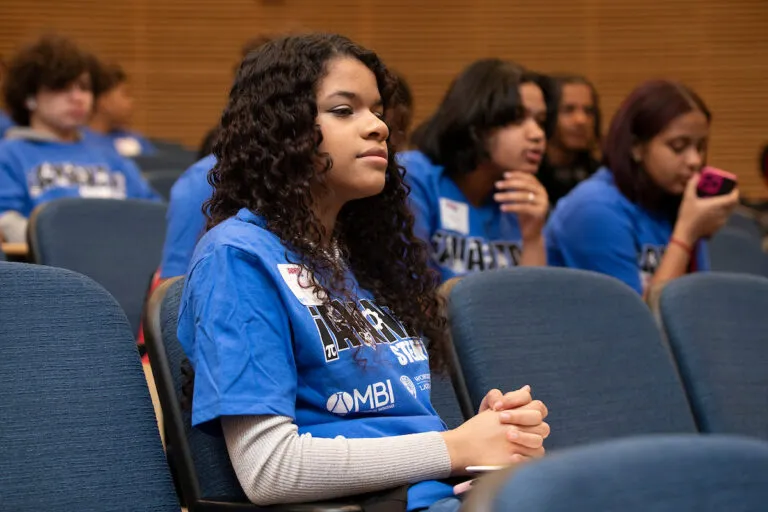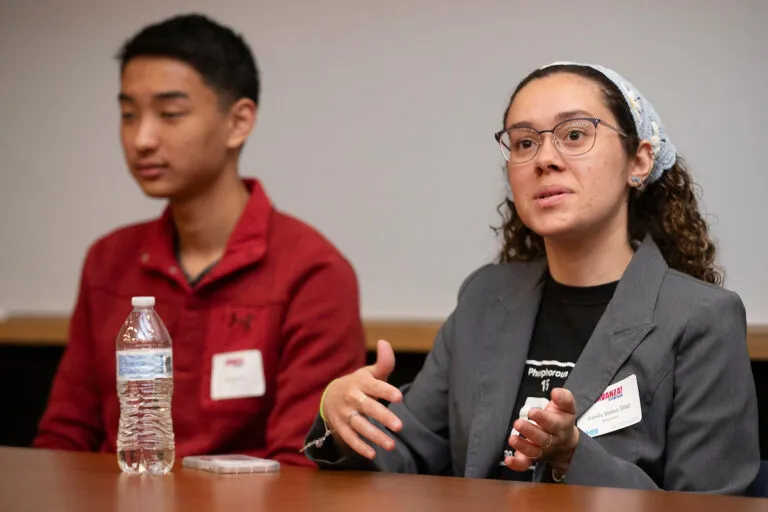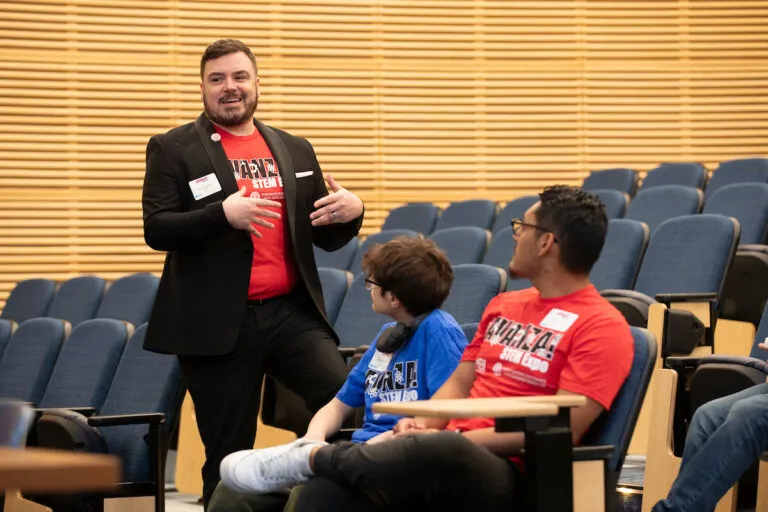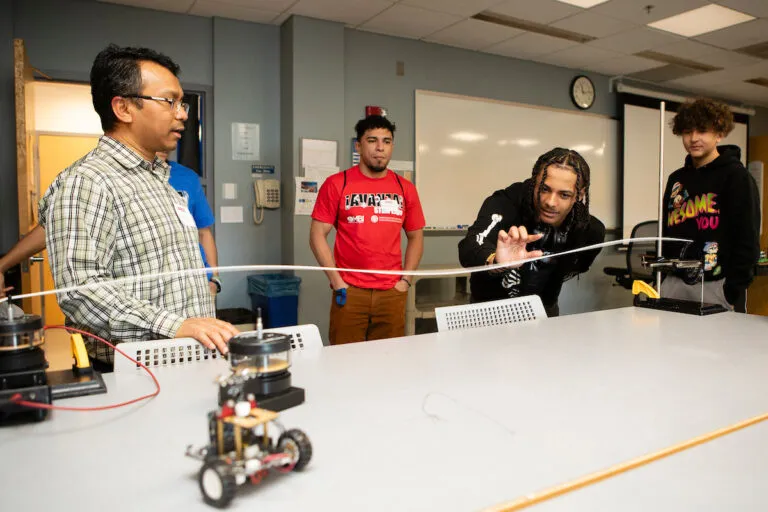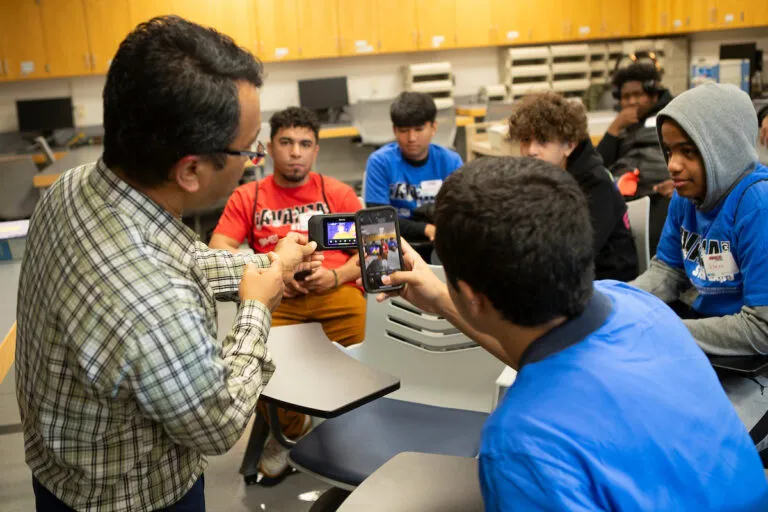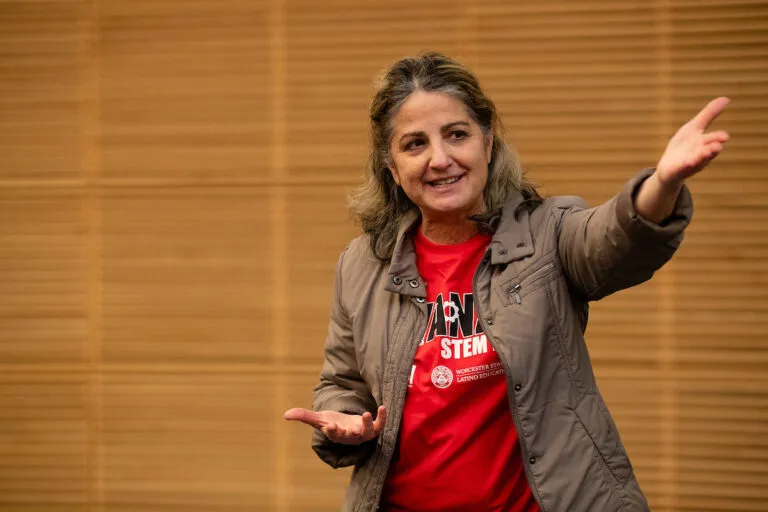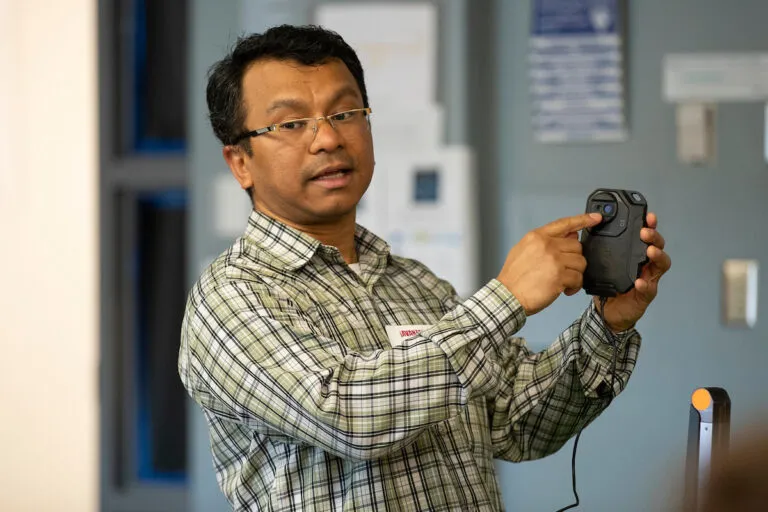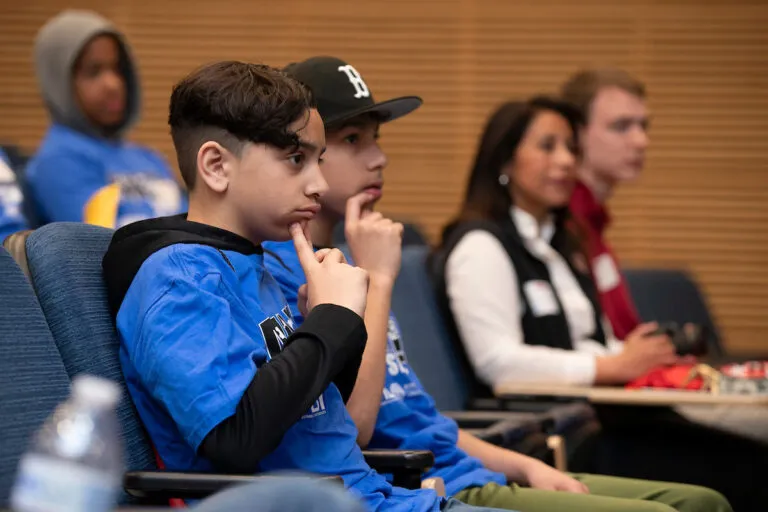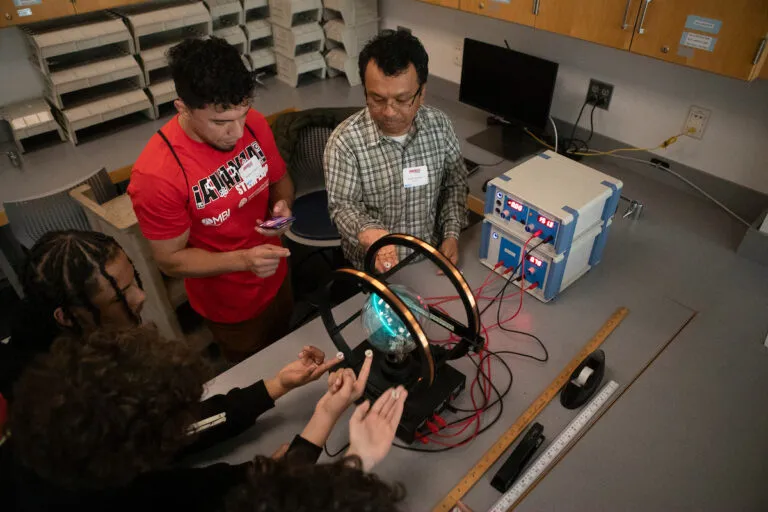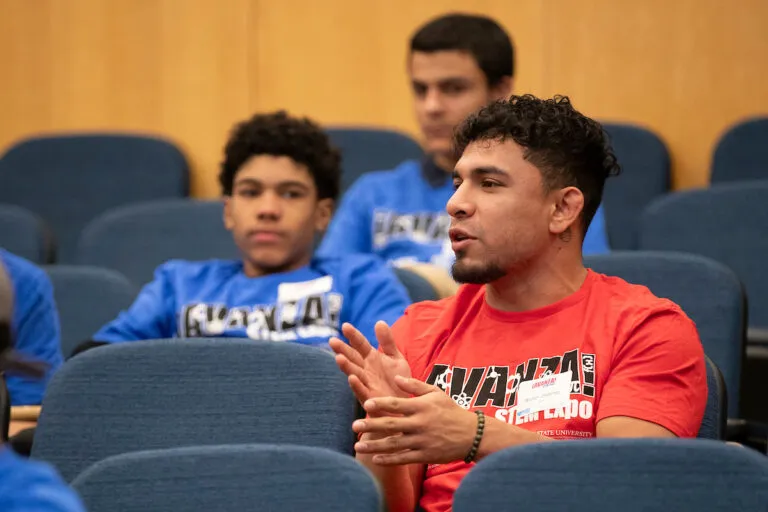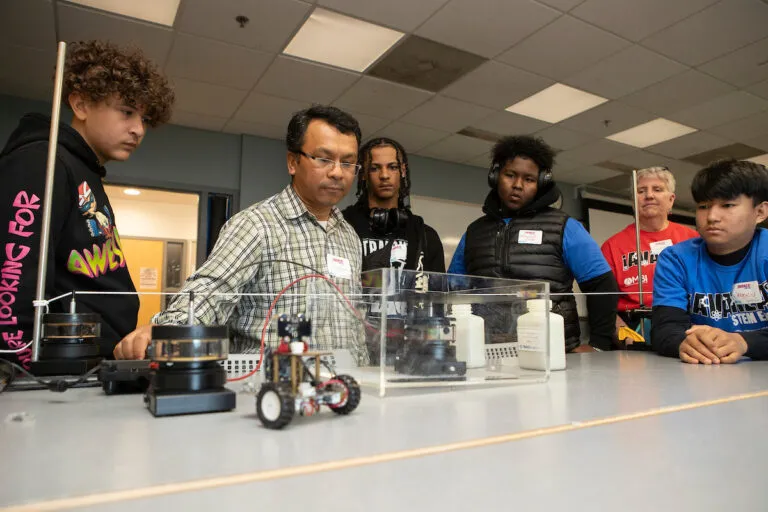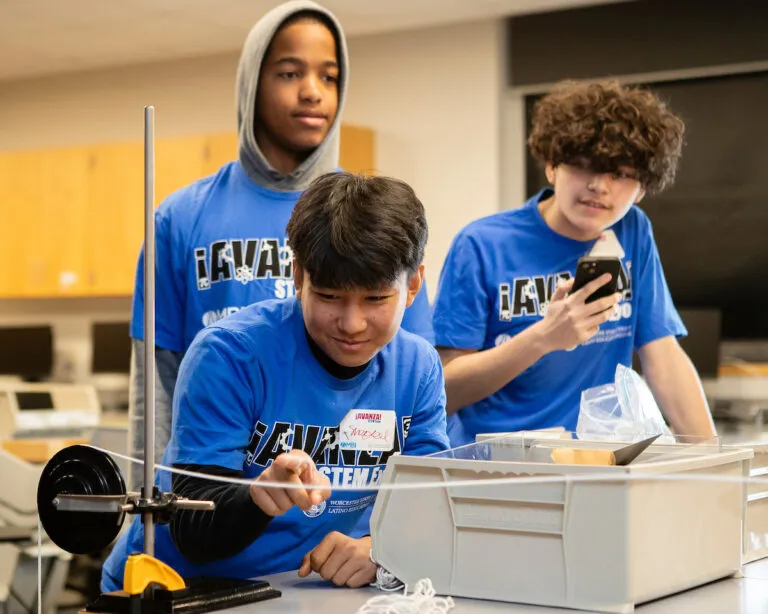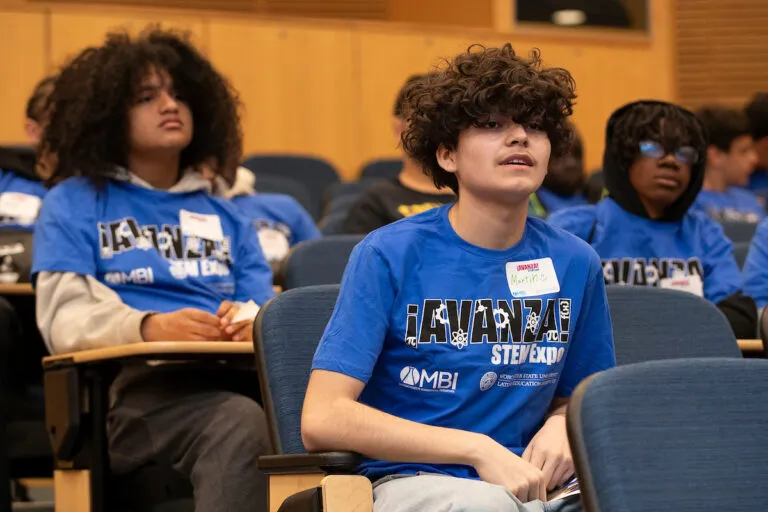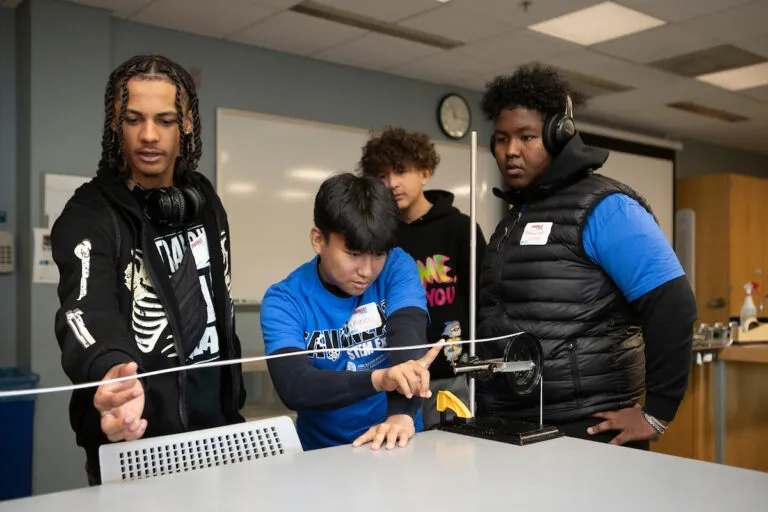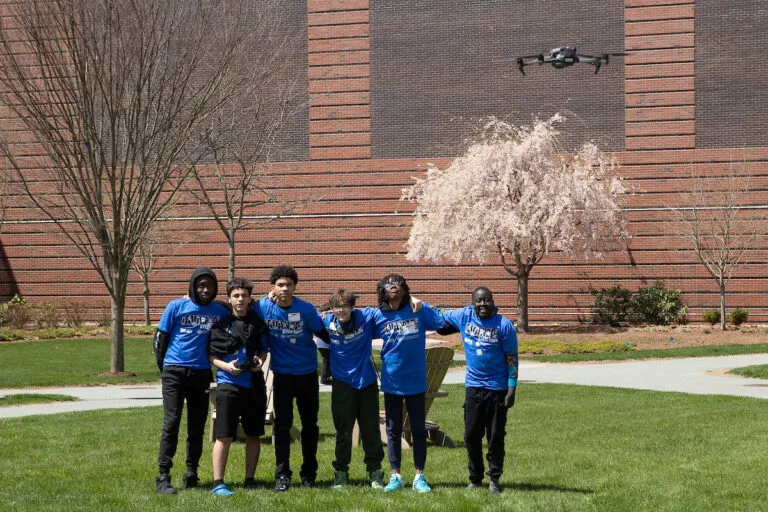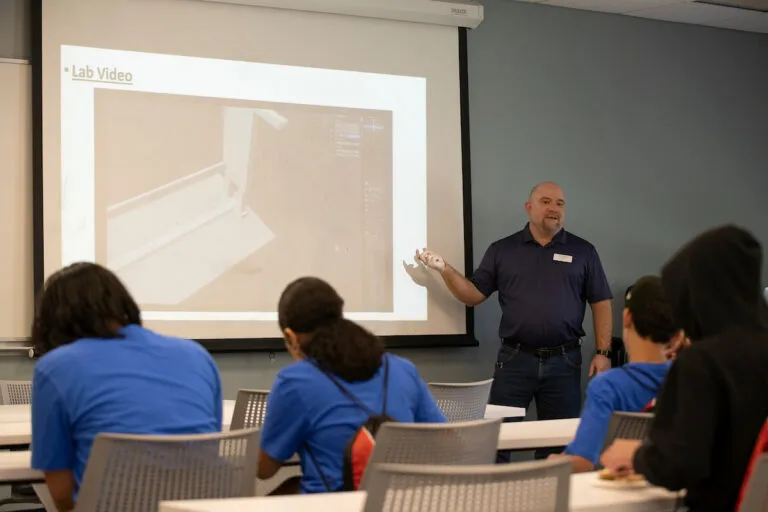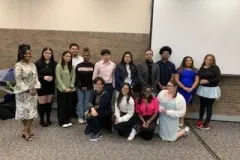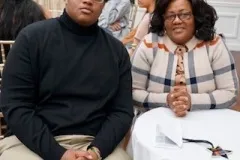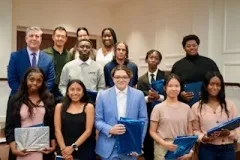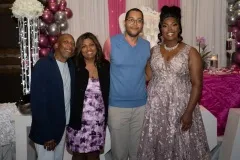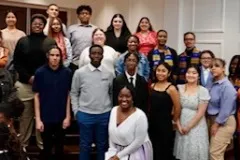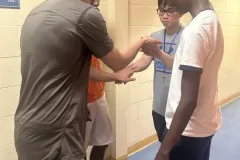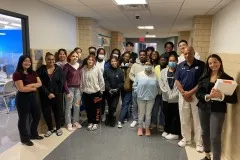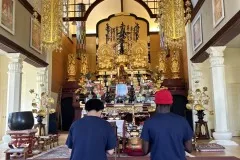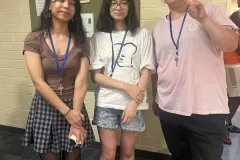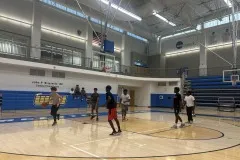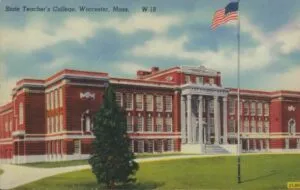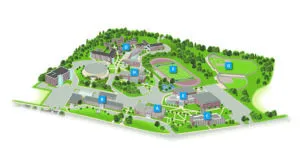Building the College Pipeline
Worcester State strengthens the college pipeline and supports the transition to college for local K-12 students with programs offered by the Office of Multicultural Affairs, Latino Education Institute, and Early College Worcester
Story by Taryn Plumb ’04
Photos by Matt Wright ’10
College is a gateway to new opportunities, discovery, and the next phase of life.
However, navigating into higher education can be challenging and confusing for many young people. Pathways for underserved groups and those who are first in their family to attend college can be unestablished, resources can be scant, and the whole idea of college may seem unattainable. Meanwhile, some students who do successfully enroll may find the experience far more overwhelming than they ever expected.
Over the decades, Worcester State University has worked to establish strong college pipelines to help students in Central Massachusetts gain access to higher education—and, just as importantly, succeed once they get in. The pipelines begin early—all year round, elementary school children visit the campus for a variety of activities from Math Madness with the women’s basketball team to working in the Worcester State Teaching Garden. High school students take part in numerous activities including National African American Read In & ALANA Preview Day and summer STEM programs.
Time on campus can be pivotal for high school students who are beginning to explore their education career possibilities. But the education system can be complex, and many Latine students—particularly those from low-income backgrounds or immigrant families—struggle to find their way. The Latino Education Institute (LEI) helps students overcome these obstacles by actively engaging with local high schools.
“Our programs offer students opportunities for academic enrichment, personal development, and community engagement, ultimately empowering them to succeed in school, college, and beyond,” said LEI Executive Director María A. Juncos-Gautier.
LEI has been collaborating with local high schools for 25 years and has two initiatives tailored to Latine students’ unique needs and challenges: Latinos Involved in Discovering Educational Resources (LIDER) and the Youth Civics Union (YCU). LIDER provides students and parents with year-round activities aimed at increasing access to and enrollment in higher education. Participants get personalized support and guidance on college readiness, financial aid, and the college application process.
YCU is a youth-led leadership program that aims to increase post-graduation readiness through advocacy and community engagement. They become involved in youth participatory action research projects that investigate and address issues in their communities. They then present their findings and recommendations at YCU’s annual Youth Summit celebrated every year at Worcester State’s Student Center.
LEI has shown great success over the years. According to Juncos-Gautier, roughly 80% of the high schoolers the institute serves annually have enrolled in college over the last 10 years, and roughly 33% have applied to Worcester State each year. Similarly, the university has had a high acceptance rate for LEI-affiliated applicants, with 81% of applications accepted annually.
Supporting Latine students who predominantly come from immigrant and low-income families is of “utmost importance,” said Juncos-Gautier. Worcester State has recently been designated an Emerging Hispanic Serving Institution by the Hispanic Association of Colleges and Universities, and it is on the way to becoming a Hispanic Serving Institution.
“Education, as we all know, is a potent tool for social mobility and economic empowerment,” said Juncos-Gautier. LEI’s approach can help break the cycle of intergenerational poverty within the local community, said Juncos-Gautier. Just as importantly, she added, “increasing the representation of Latine individuals in higher education enriches our society, fostering innovation, creativity, and understanding.”
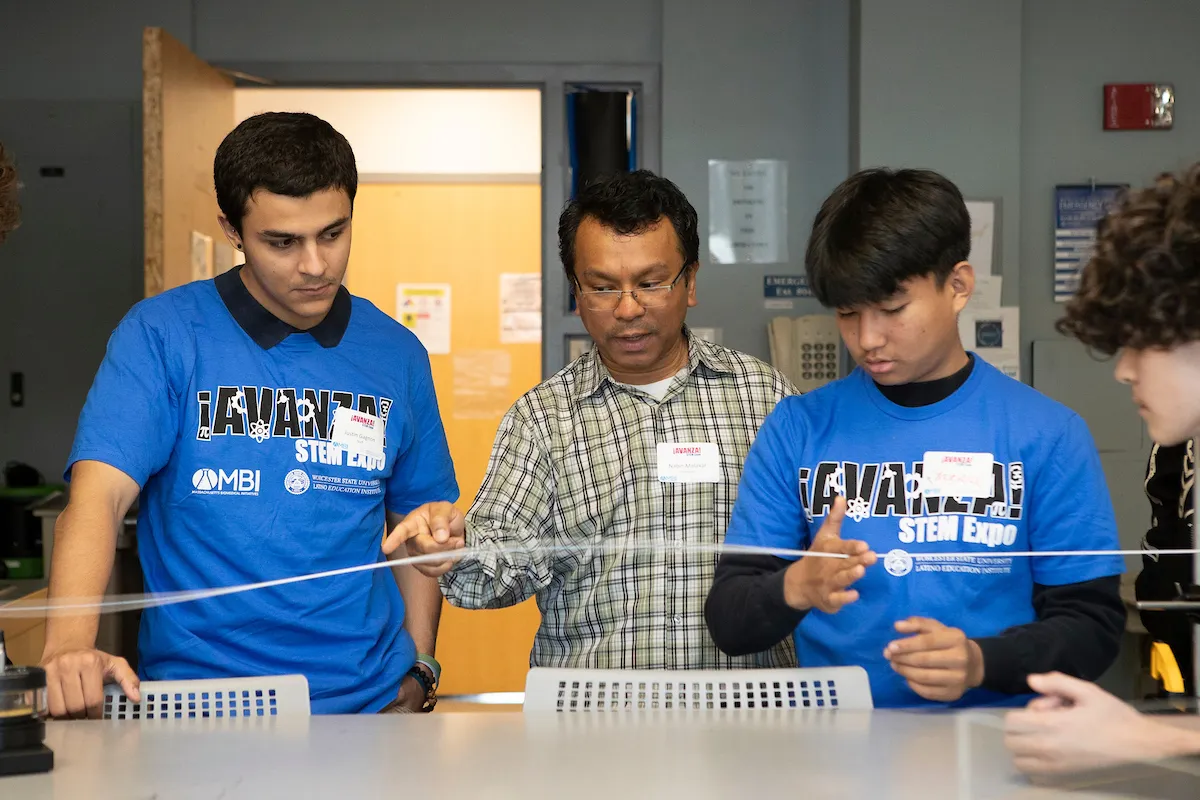
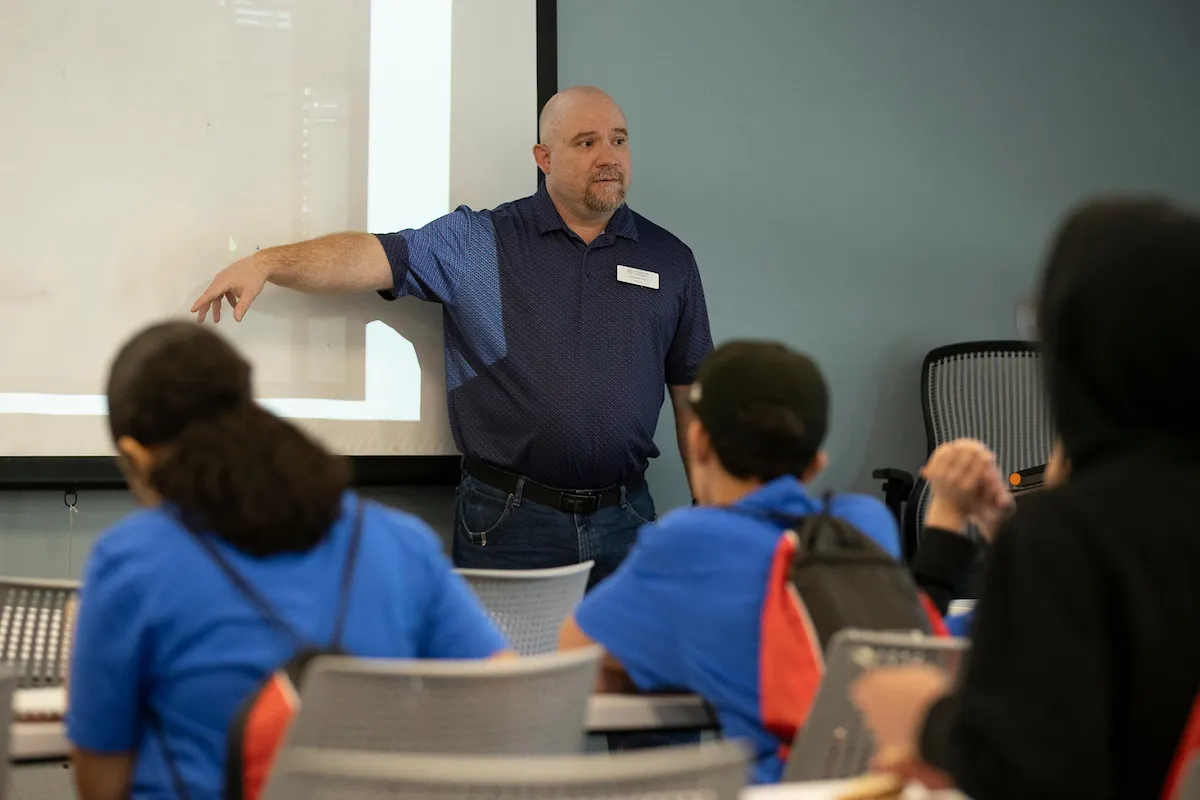
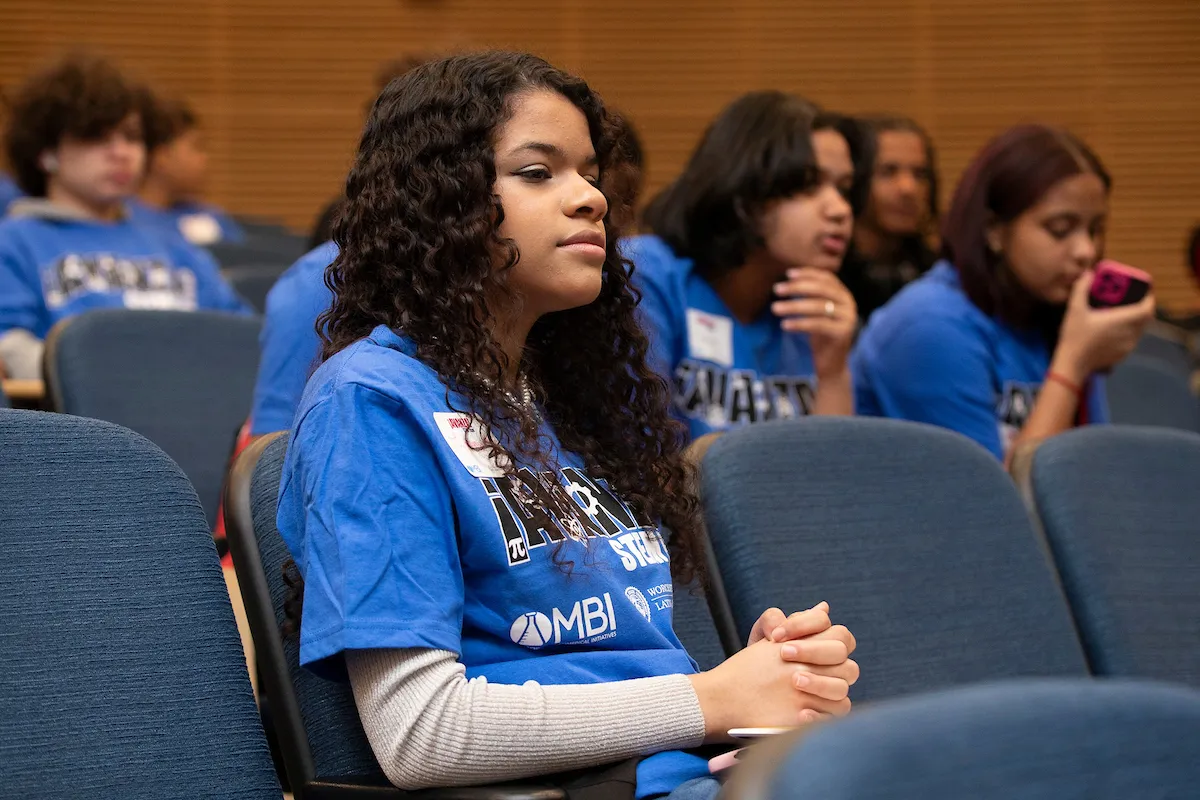
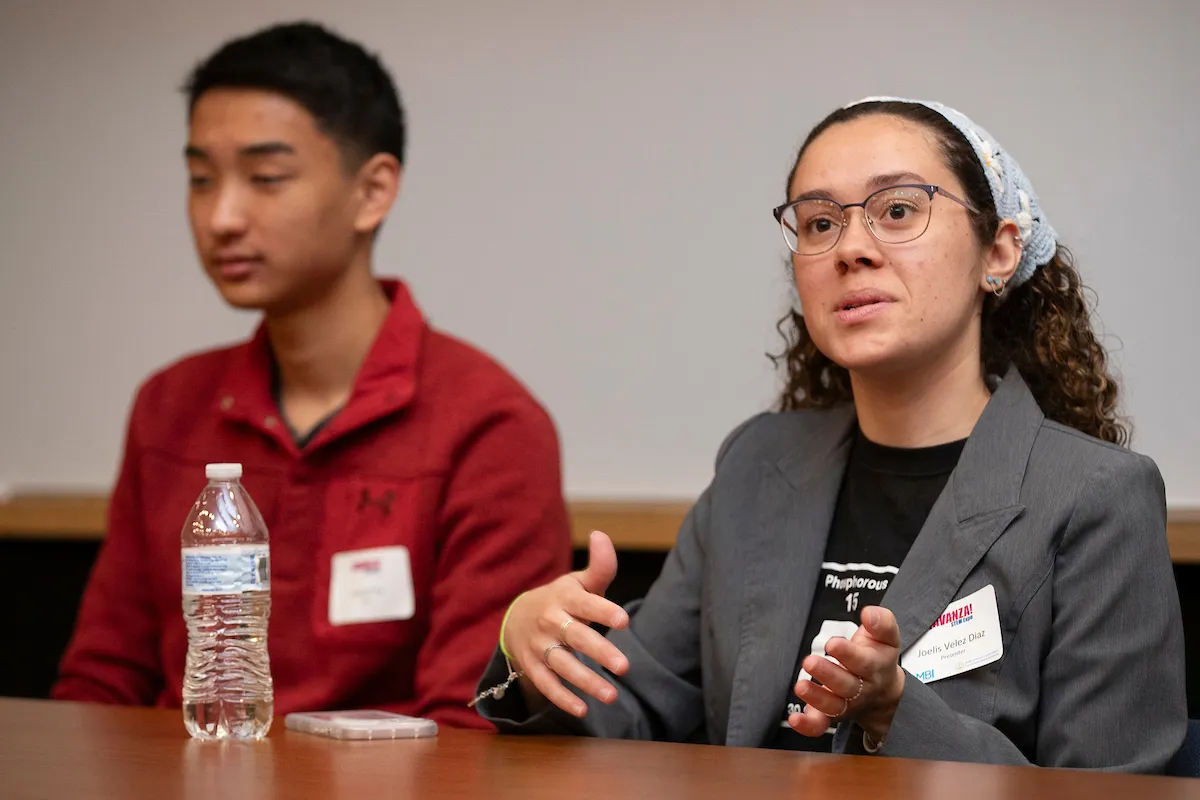
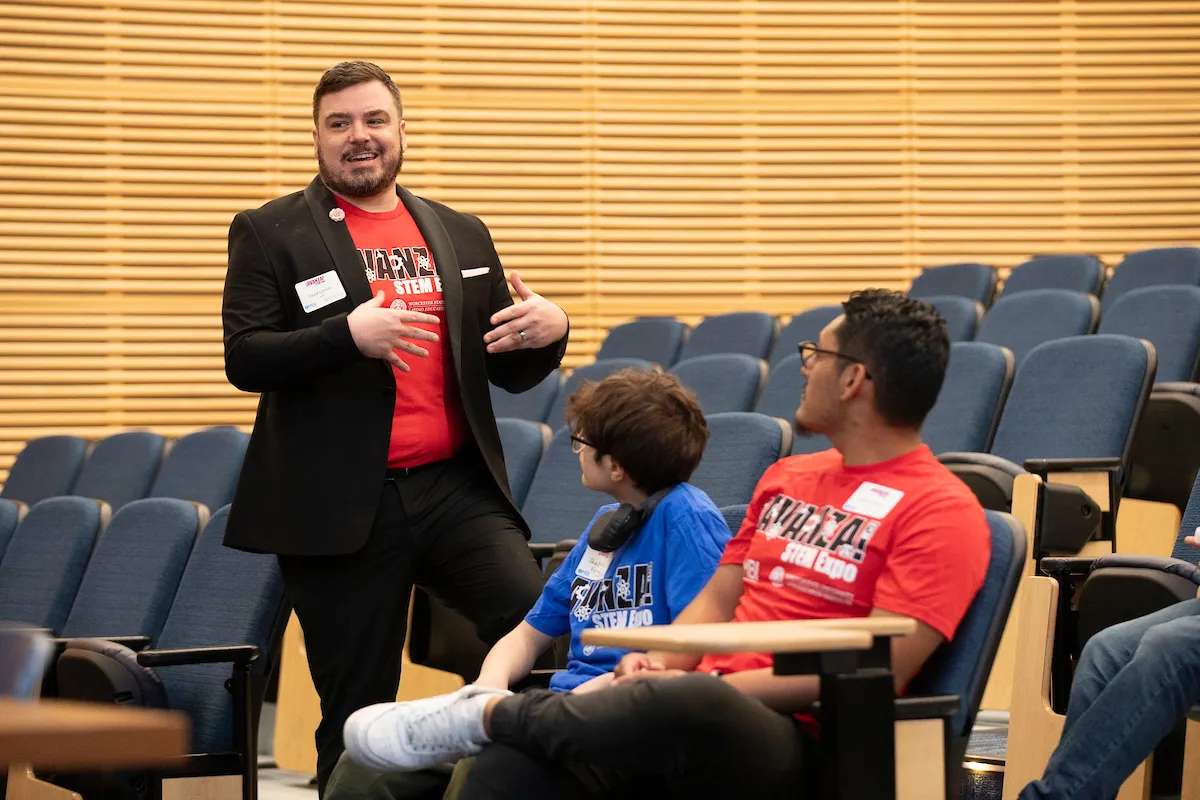
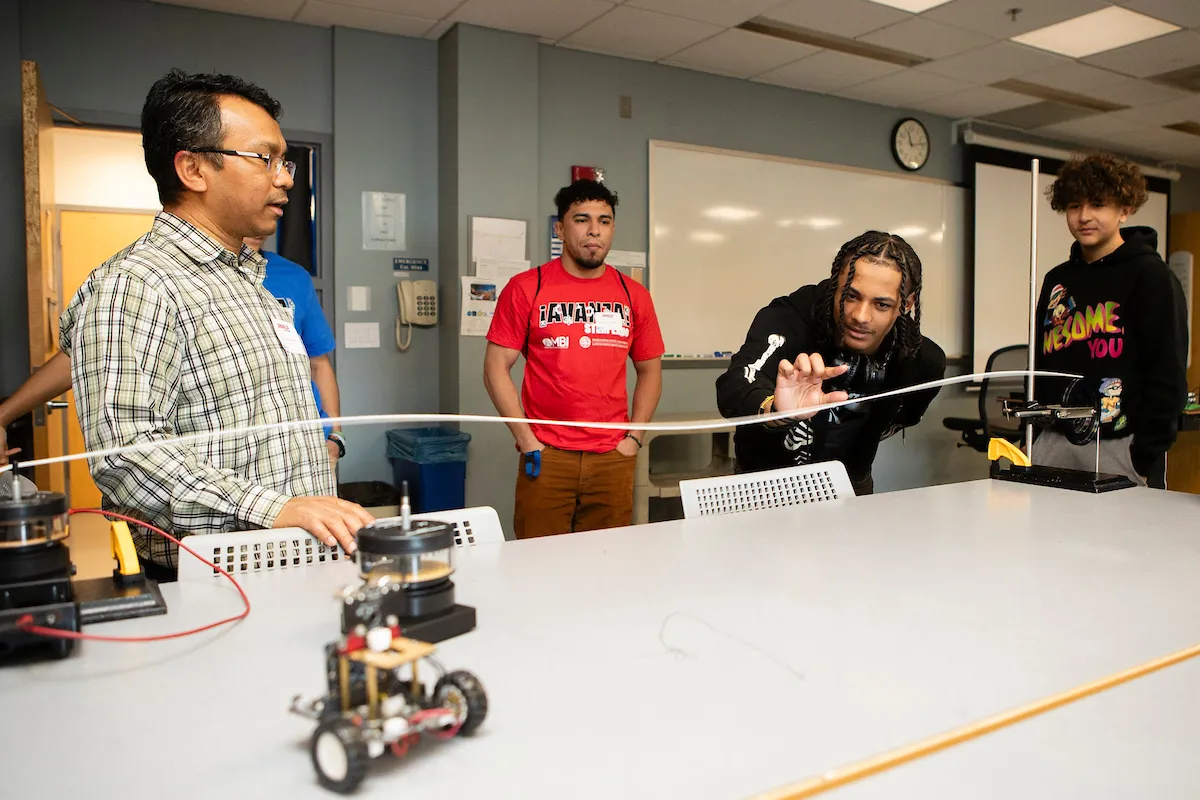
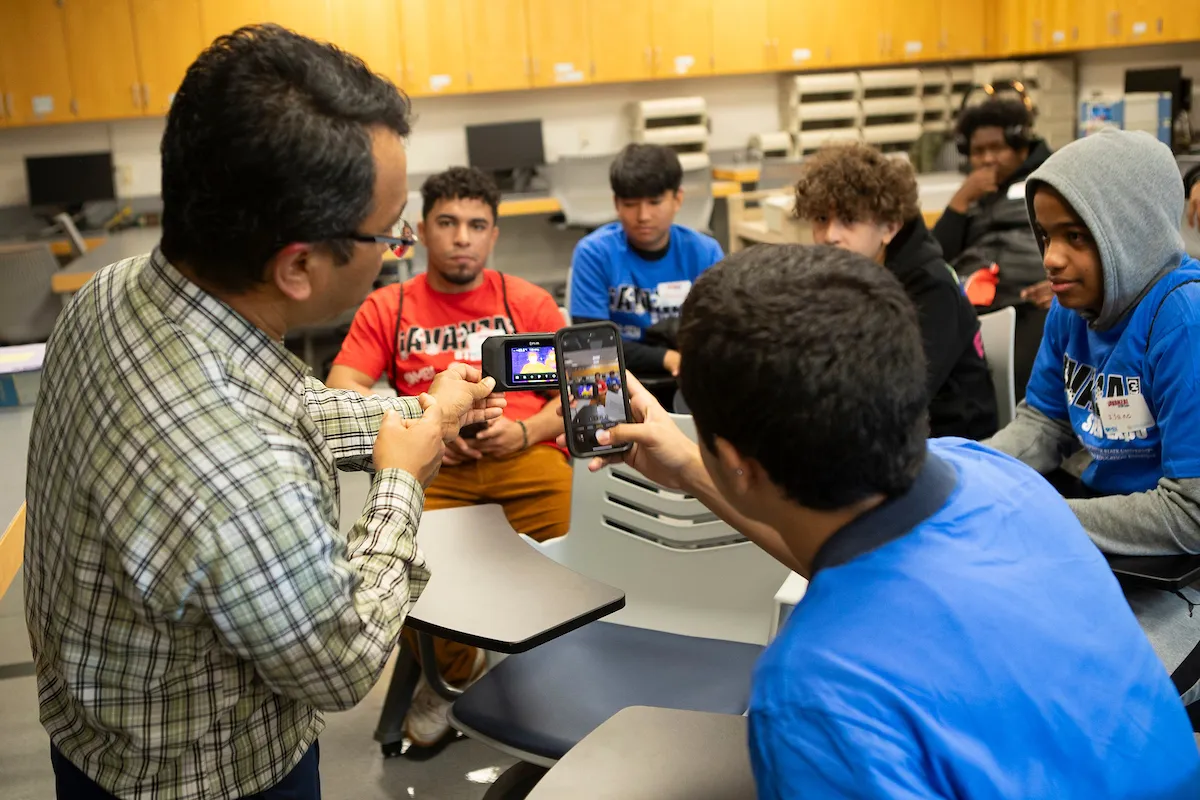
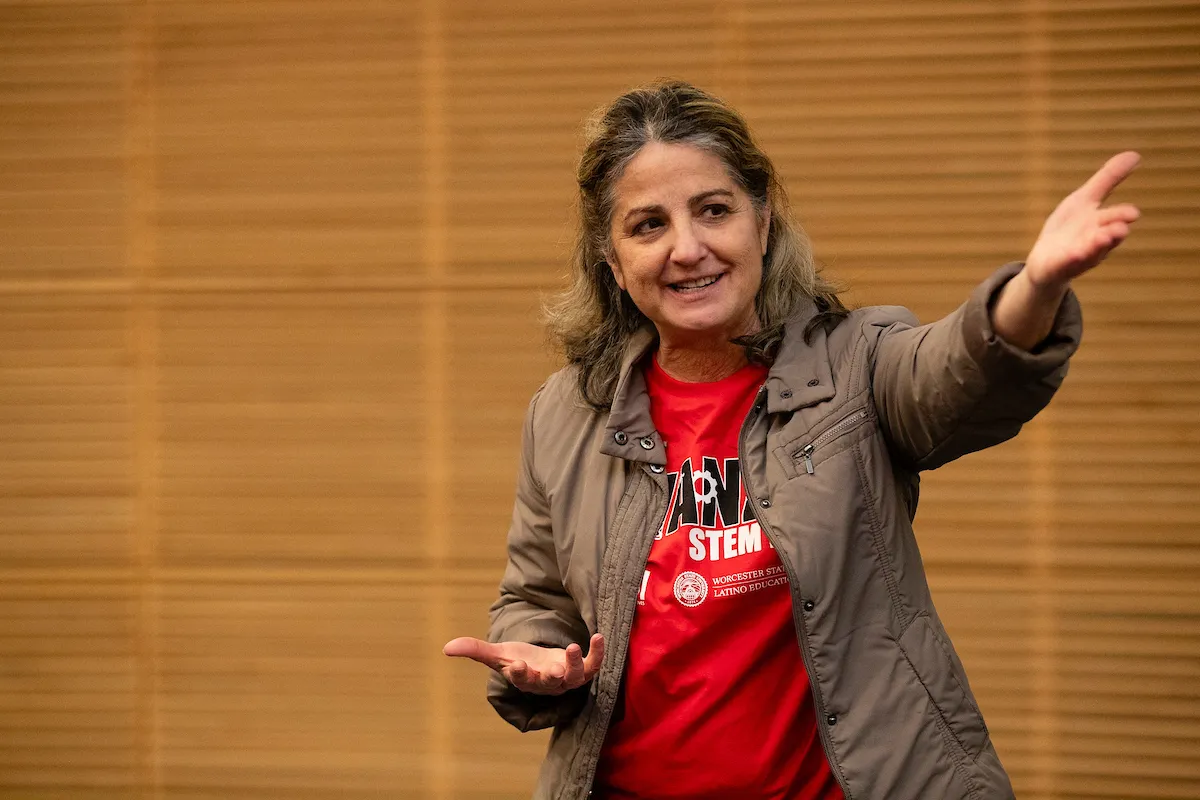
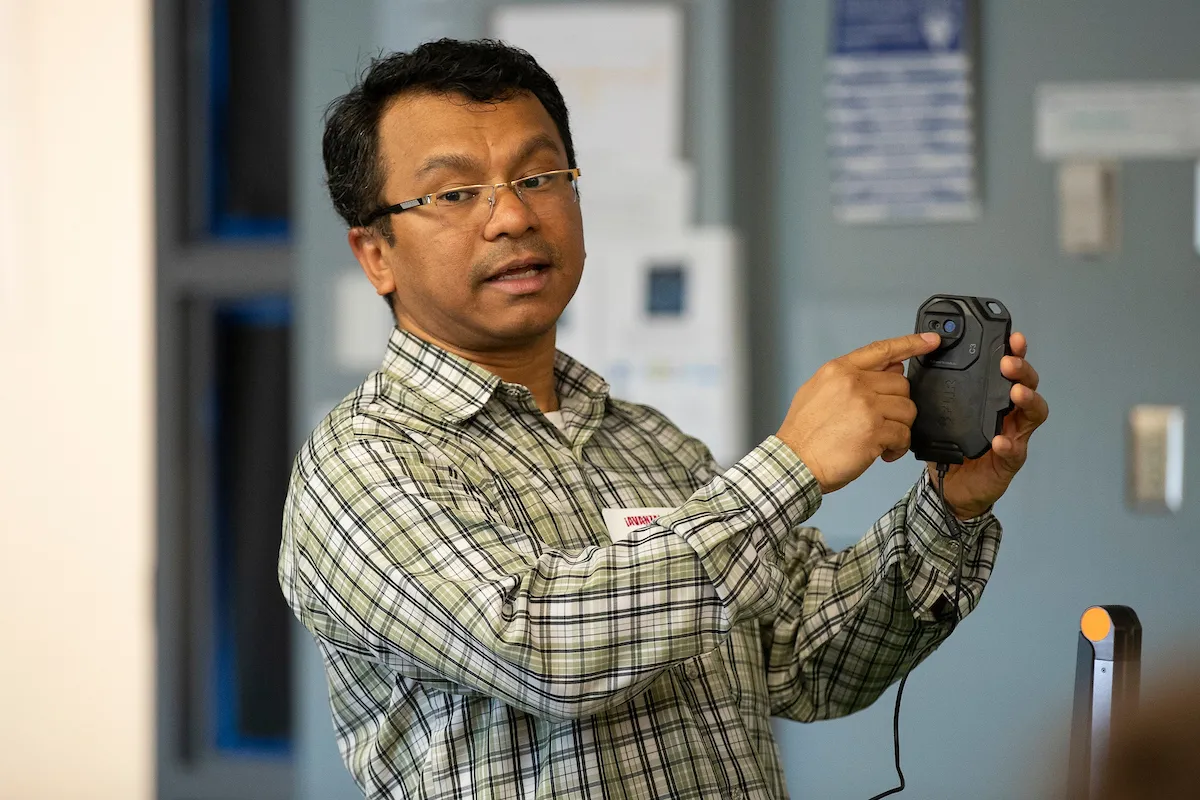
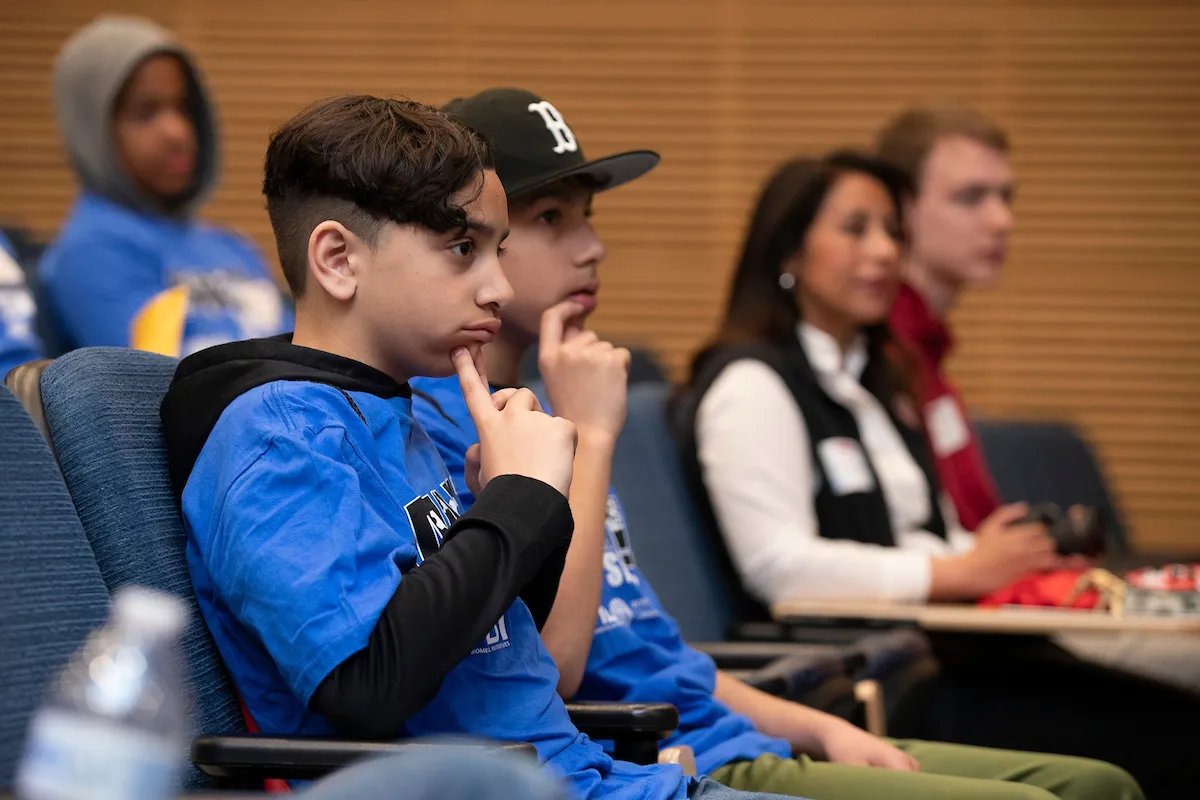
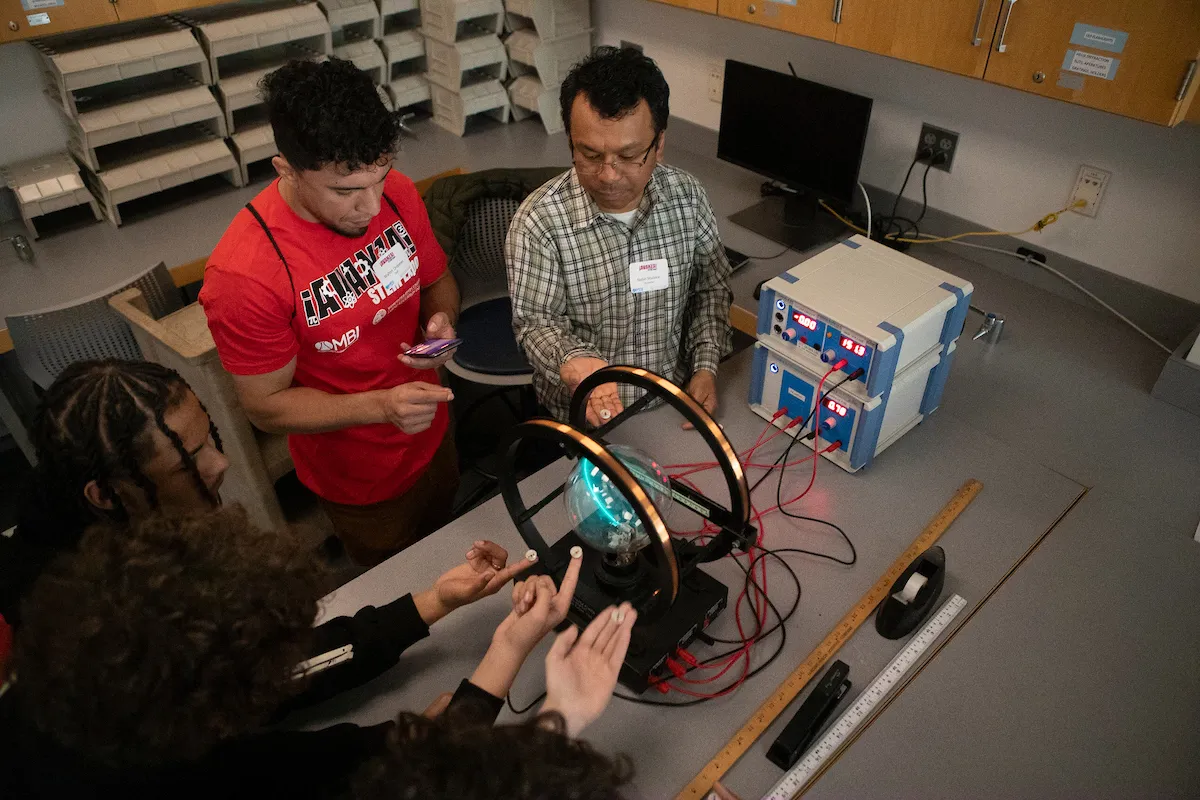
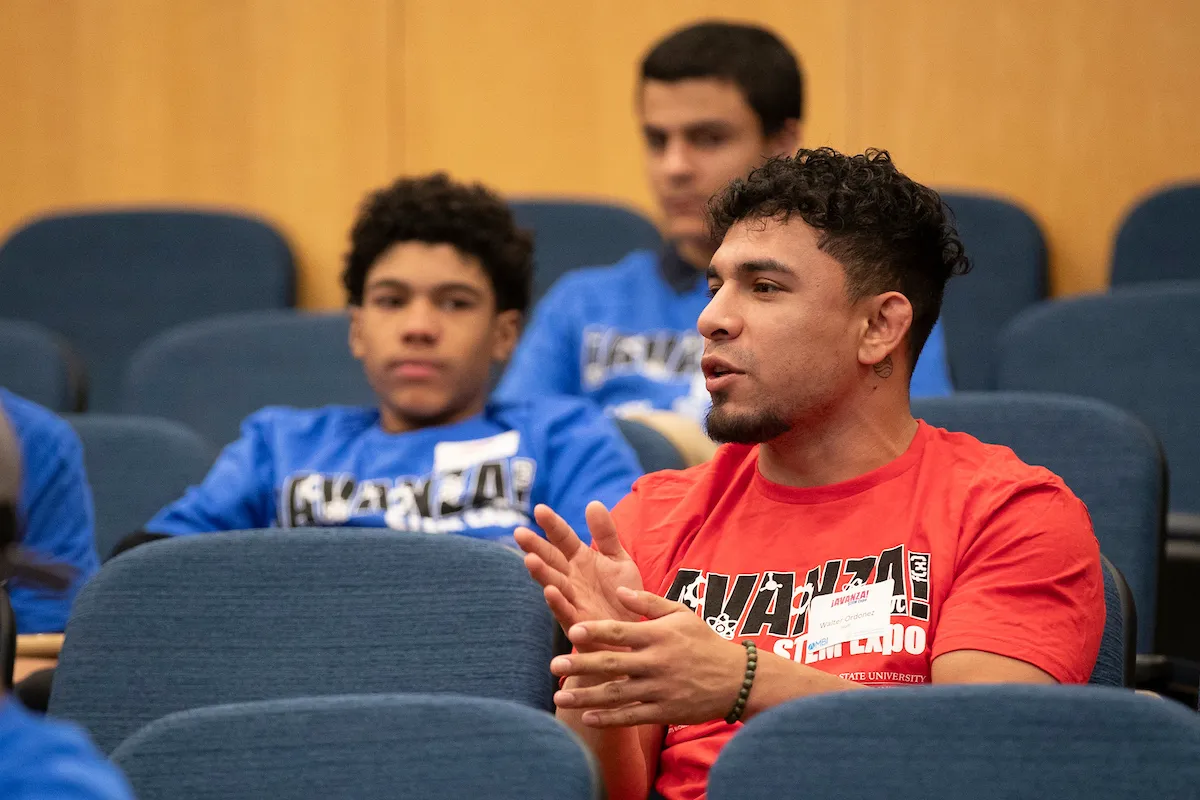
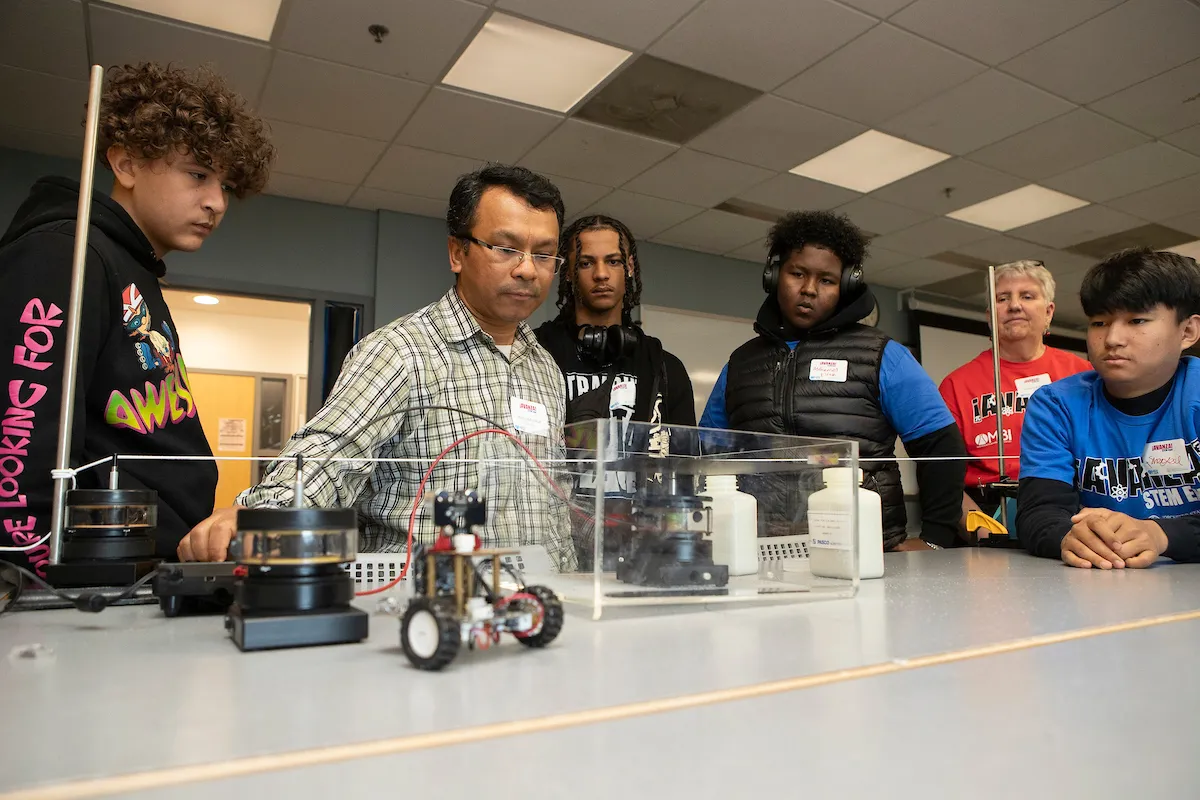
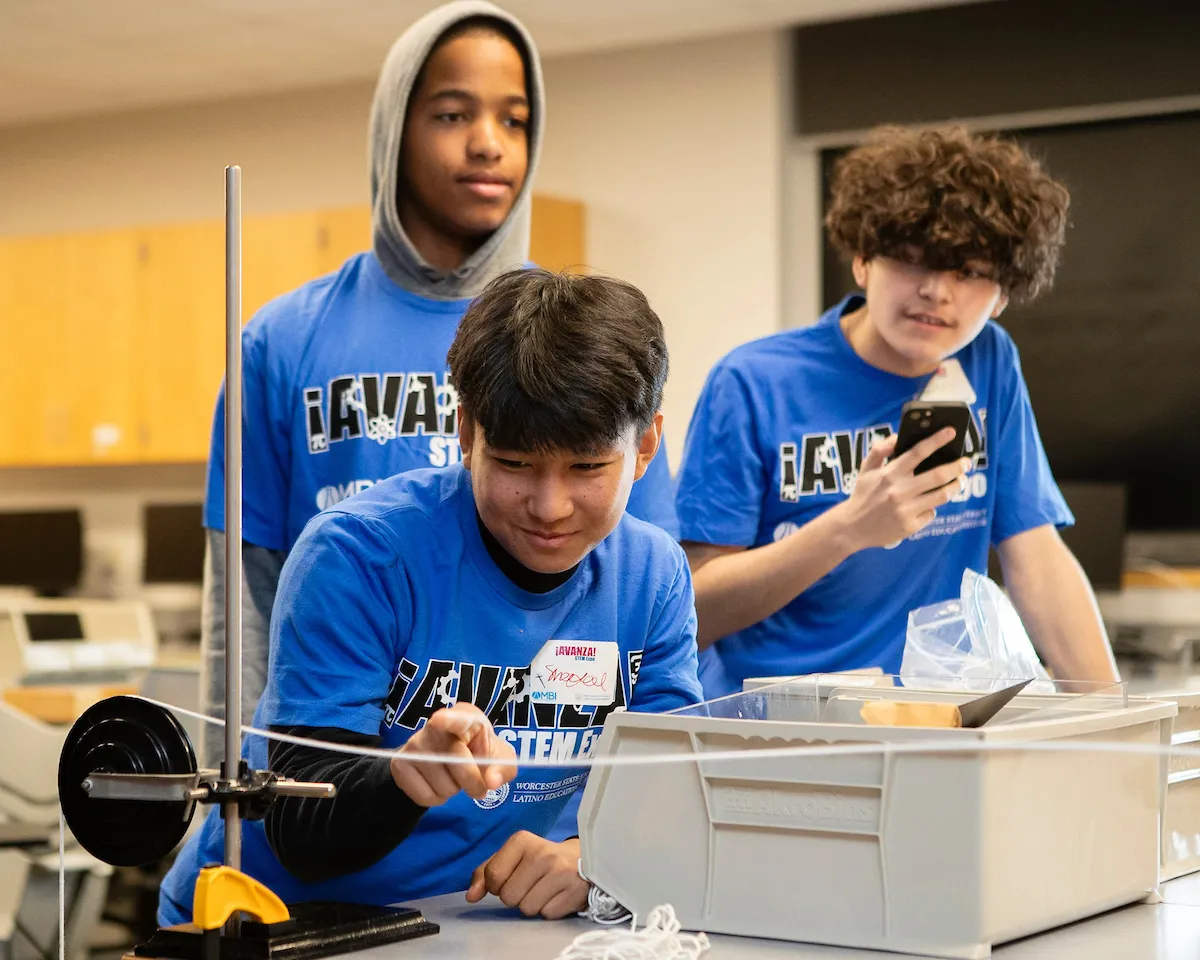
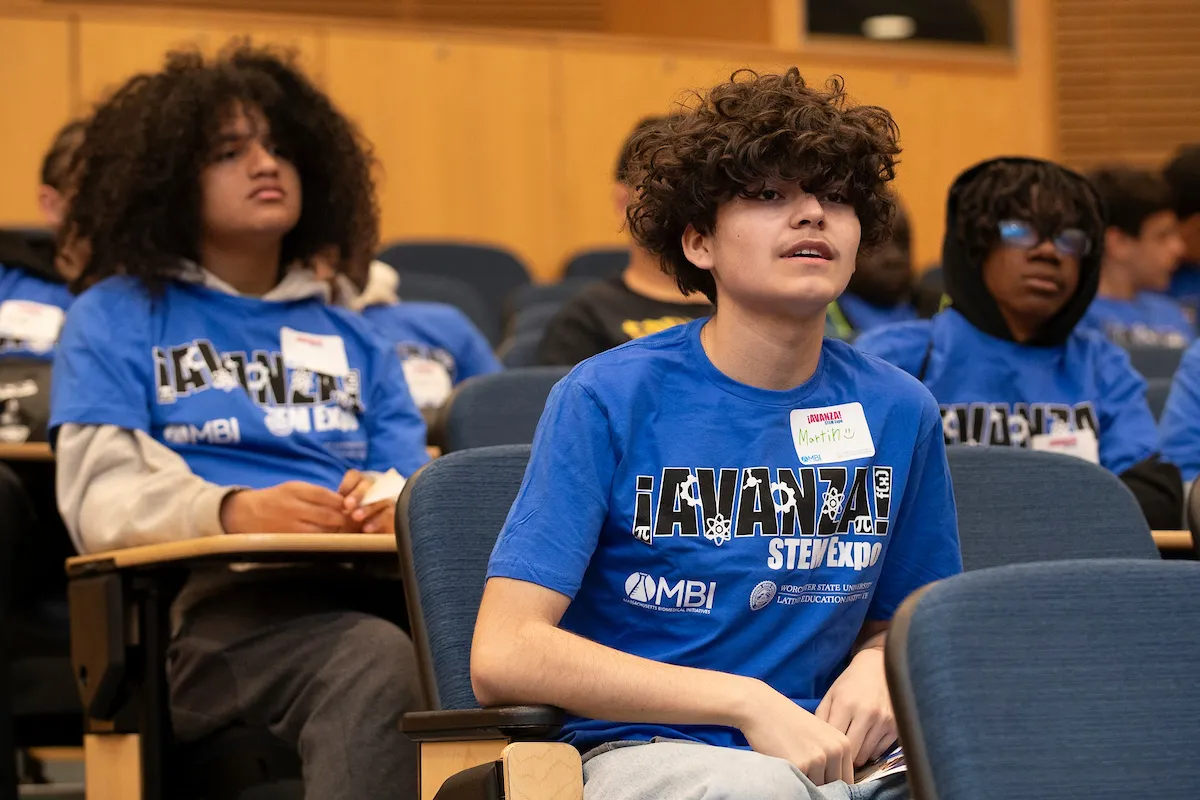
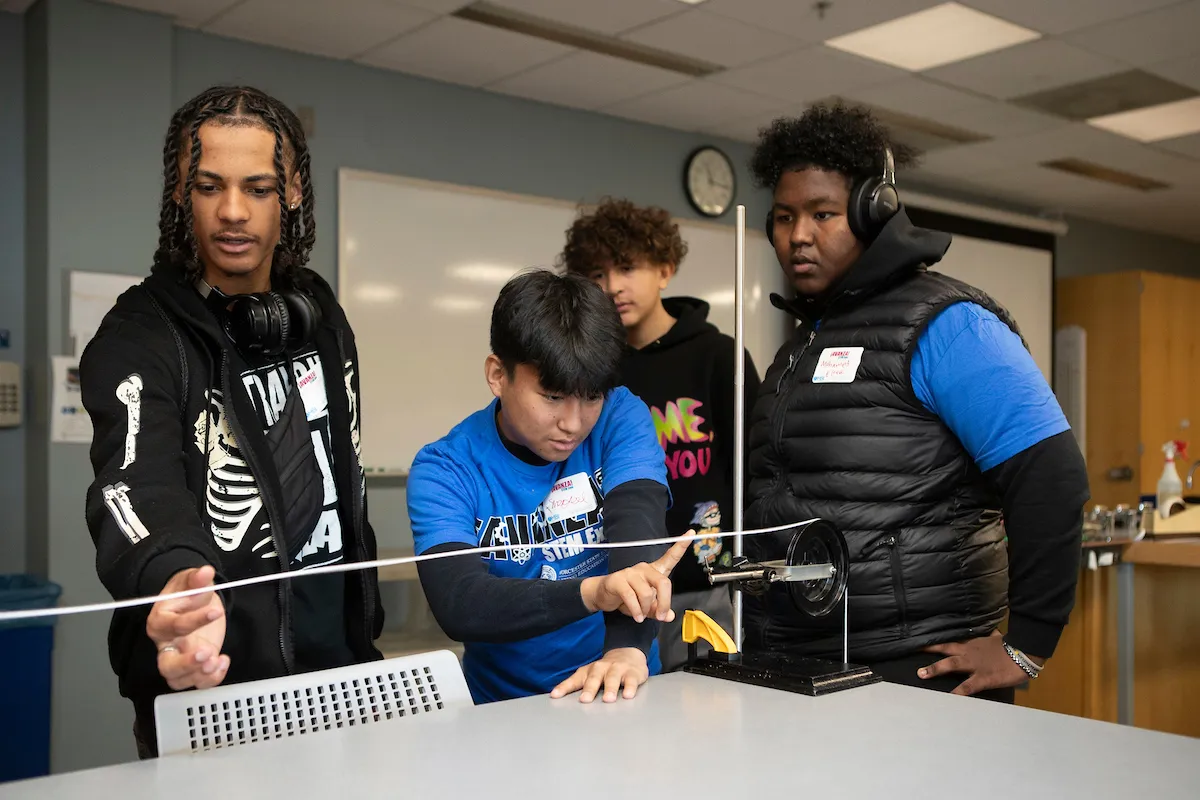
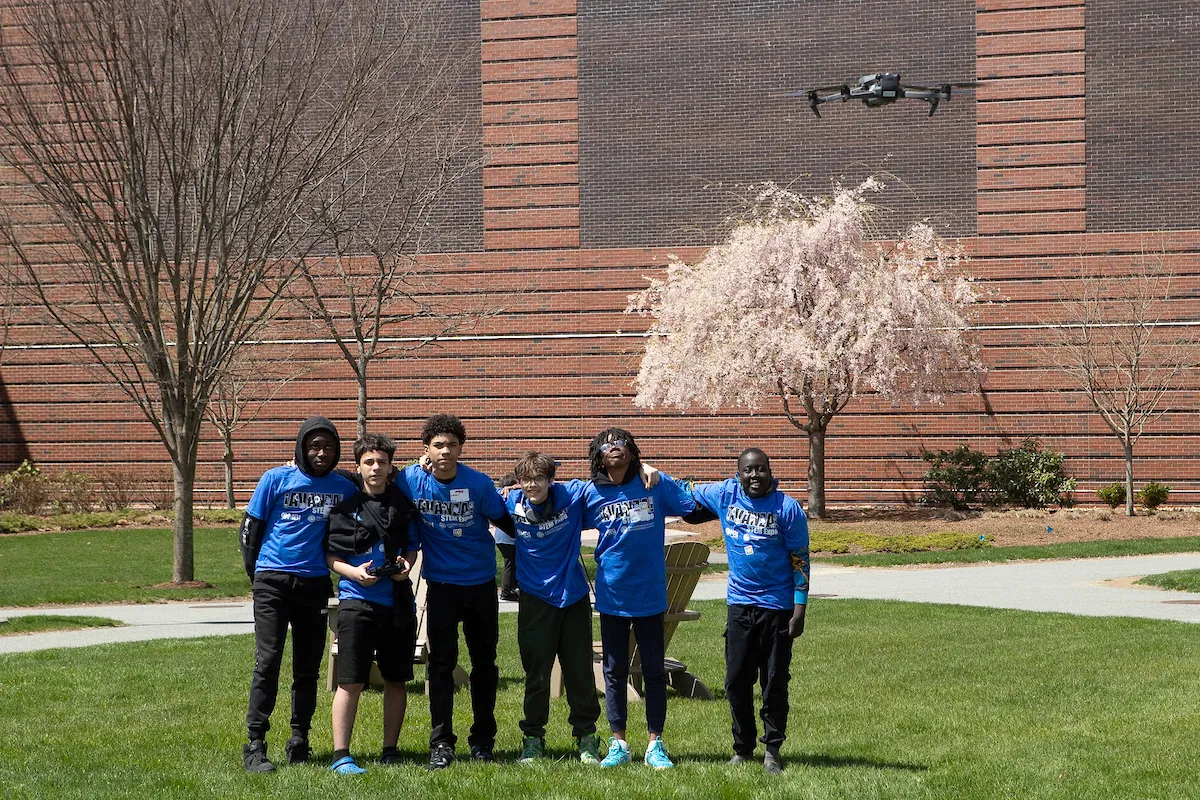
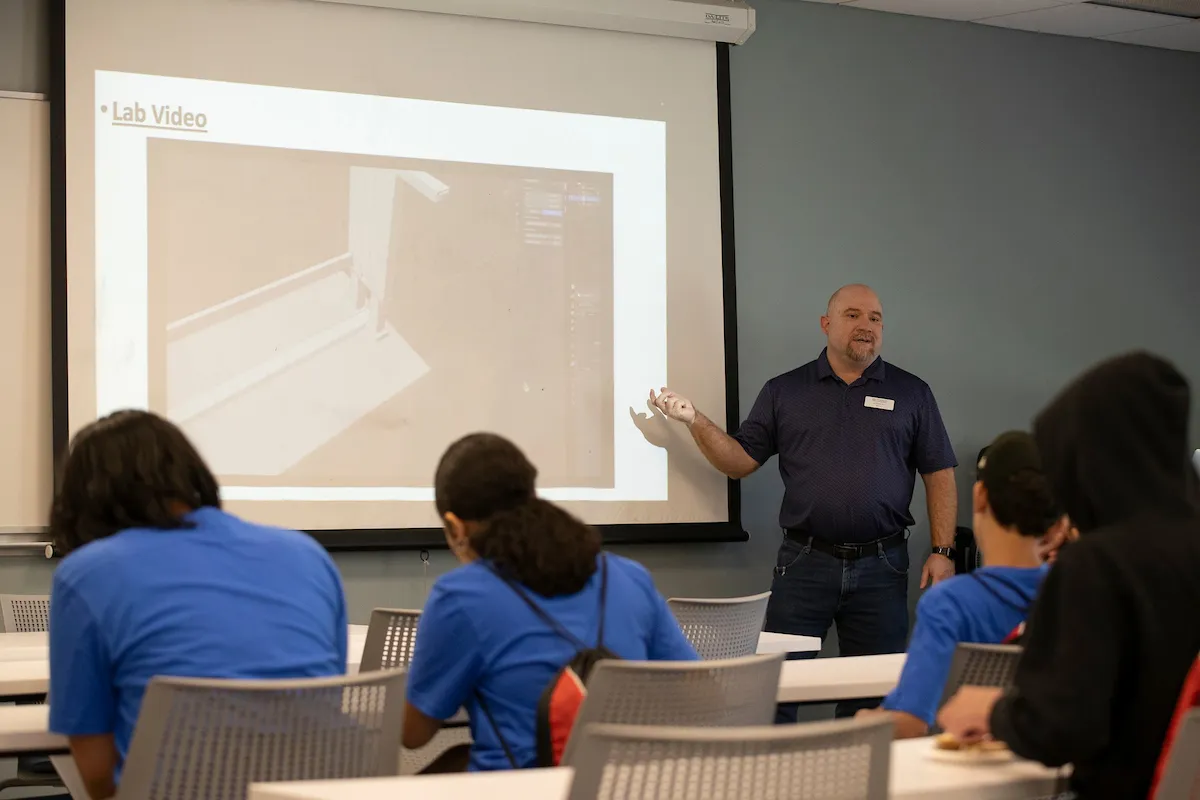
Easing the transition to college
For many new students, college can be a bit of a culture shock. Whether they’re living on campus or commuting, it is an entirely new experience. Worcester State’s Upward Bound program helps to ease this transition—serving as a sort of college preview. Students participate in educational courses as well as a range of self-confidence boosting activities and events, collaborative sessions, college visits, and trips to cultural sites.
Coordinated by the Office of Multicultural Affairs (OMA), Upward Bound offers two different avenues: a five-week summer residential academy and 22 Saturday sessions throughout the academic year. Both are offered at no cost to Worcester Public Schools students, typically ninth and tenth graders who are first generation, low income, and/or African American, Latin American, Asian American, or Native American.
“Students come here and are exposed to what college is going to look like,” said Eriberto Mora Carrera, assistant director of OMA. “They get the chance to build their critical thinking skills, their problem solving skills.”
Upward Bound programming covers English, STEM, performing arts, and other subjects. “We expose them to course material as sort of an excerpt, so that they can be prepared and excited,” said Laxmi Bissoondial, director of the OMA (who herself is an Upward Bound grad).
Students also participate in sessions around college admission, academic and financial aid, career counseling, and skill development, as well as more broad-reaching concepts around self-awareness, collaboration, and interpersonal skills. And, to give them an idea of the different college experiences and what might work best for them, they live on campus half the time and commute the rest. During their weeks on campus, students are involved in different programming, workshops, and social and after-hours events, and they have access to peer mentors.
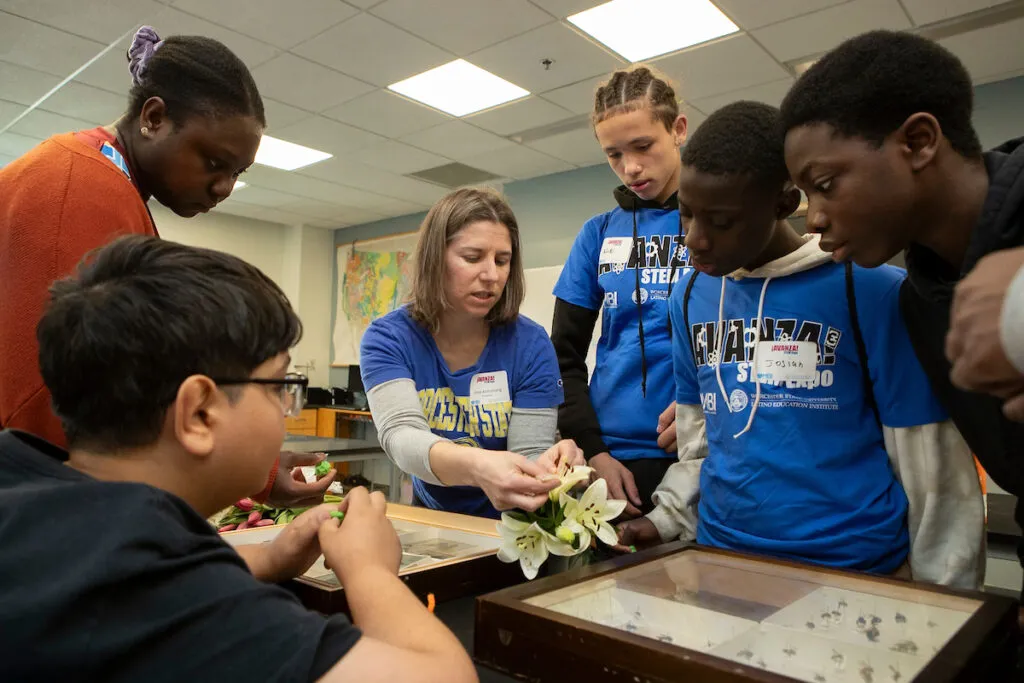
Worcester State assistant professor Anne Armstrong works with local public school children to explore the world of Massachusetts pollinators during the Avanza STEM Expo in April.
Throughout the five weeks, they visit a variety of colleges and universities throughout New England, both private and public, to gain an understanding of the differences, and they have the opportunity to ask questions of recruiters. To explore cultural differences, students are taken on trips to sites such as the New England Peace Pagoda in Leverett, Mass., and the African American Heritage Trail on Martha’s Vineyard.
Bissoondial explained that the recruitment process is elaborate—and for good reason. Students need to set specific goals and make a strong commitment to the program. Their support network must also be on board; their parents, teachers, and guidance counselors must all fill out questionnaires.
“We want to know that all of these folks around you are committed to your goals,” said Bissoondial. “It’s really centered around the students and their learning experience.”
The second element of Upward Bound—the 22 academic-year workshops—is designed to build on academic skills, Bissoondial explained. They participate in exercises aimed at increasing their problem solving and critical thinking, self-awareness, time management, interpersonal and intrapersonal communication, and group dynamics. They also learn about career development from guest experts.
“Many of our students have learned that sometimes school can be boring, or it can just be a pathway to get a job,” said Bissoondial. “We want them to be excited about learning and be able to visualize themselves in a profession—and not just a job.”
Earning early college credits
Some high school students can’t wait to get to college—while many are also (understandably) concerned about cost.
Early College Worcester addresses both of these scenarios, offering free college courses to high school students through spring, summer, and fall sessions. The program is a partnership of Worcester State, Quinsigamond Community College, and Worcester Public Schools. It is part of a state initiative launched in 2017 by the Massachusetts Board of Higher Education and the Board of Elementary and Secondary Education and is extended to all Worcester Public Schools students.
“This is a program that aligns perfectly with Worcester State’s mission, and that is to provide an opportunity for every member of the Commonwealth to earn a degree,” said Sara Grady, associate dean of Graduate and Continuing Education.
Early College Worcester offers several pathways, from computer and IT to healthcare, elementary education, and criminal justice. Courses are also wide ranging—personal health, financial accounting, the basics of Python programming, statistics, general psychology, computer science, and introduction to business, to name a few.
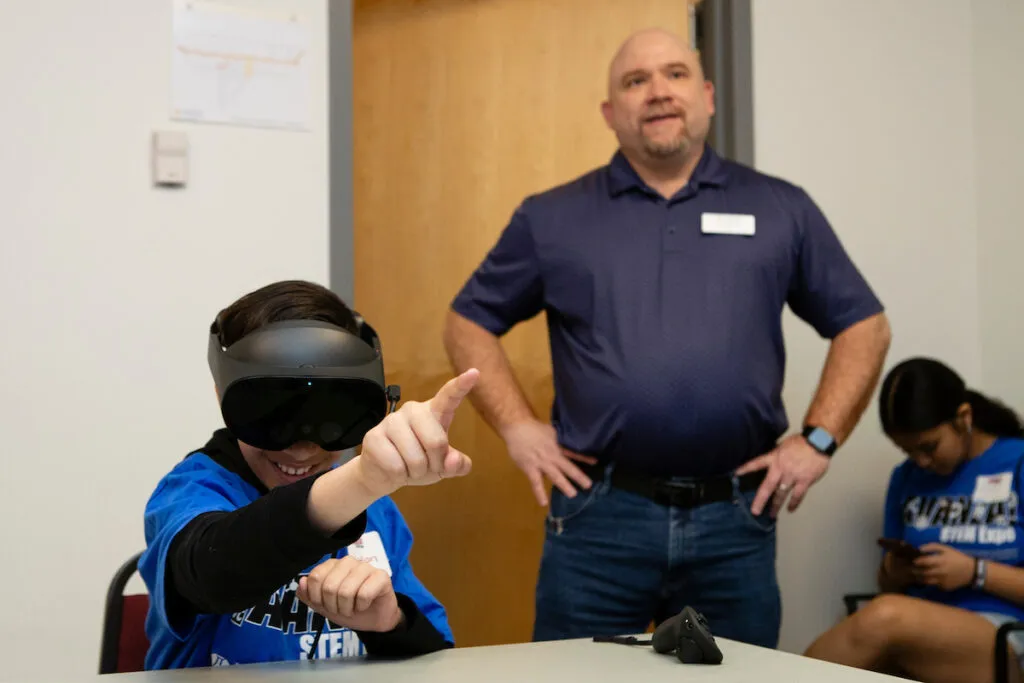
Biology assistant professor Luis Rosado leads students through a demonstration with an Oculus Quest Head-Mounted Virtual Reality headset during the Avanza STEM Expo.
Subjects are informed by student demand and need as well as feedback from local schools, explained Ryan Forsythe, vice president for Enrollment Management. “There’s some variety that hopefully catches everybody’s interest,” he said.
One of the most attractive things about Early College Worcester, he said, is that many courses satisfy high school graduation requirements (senior English, for instance). And they transfer to two or four-year public universities to satisfy prerequisite courses. “Now you have credits already in the bank, you have less financial obligation,” said Forsythe.
Typically, students amass an average of 12 credits through Early College, although they can certainly earn more—one particularly ambitious participant, for instance, is set to enter college with 45 college credits, Forsythe noted. The program largely recruits 12th and 11th grade students, but there are also some 10th graders and even the occasional freshman.
Beyond the pure educational element, students can participate in college preparatory workshops and bootcamps and various social engagements. Ultimately, the program “improves their confidence in entering college,” said Forsythe.
The university offers Early College-like programs beyond Worcester, too, Forsythe explained (these are not designated by the state). He estimated that the college offers so-called dual enrollment programs to 20 different school districts across the state. “It won’t be long before we are enrolling thousands of students in the programs that we call ‘early college,’” said Forsythe.Eligible high school students can participate in a range of courses, and they are also connected with “near-peer” mentors who act as a support system, checking in with them throughout the semester to make sure they’re on track and not getting overwhelmed by the experience.
“We’re able to encourage them not only to be successful in the early college program,” said Forsythe, “but to see themselves as likely college-going students in the future.”
Top image: Worcester State associate professor of physics Nabin Malakar works with students from Worcester Public Schools during LEI’s Avanza STEM Expo in April, one of numerous programs that bring local middle and high school students to campus.

